Commentary November 17, 2022
Goal! Ranking the 5 Best Team Jersey Crests at the 2022 World Cup
Great design and powerful symbolic narratives are the essential elements of our (completely subjective) winners.
What makes a great logo?
Sure, the visual elements must work. They have to catch the eye and draw you in and hold your attention. But, for me, it’s more than that. The logo has to embody the character of what it’s representing – be it a company or a national football (soccer) team. There has to be a story that informs the design … a narrative about what the logo symbolizes and represents that’s conveyed instantly, almost intuitively, before words.
Some of the best team jersey crests at the 2022 FIFA World Cup do just that. The global soccer tournament, which draws billions of viewers when it’s held every four years, kicks off Sunday, Nov. 20, in Qatar. And as national teams representing 32 nations from around the globe prepare to compete, and as we here in the promotional products industry are in the business of logos and graphic art and design, I thought it would be interesting to rank which on-jersey team crests are the best. I’m a dork like that, I suppose.
Anyway, these are my completely subjective top five. What did I get wrong?
5. Wales
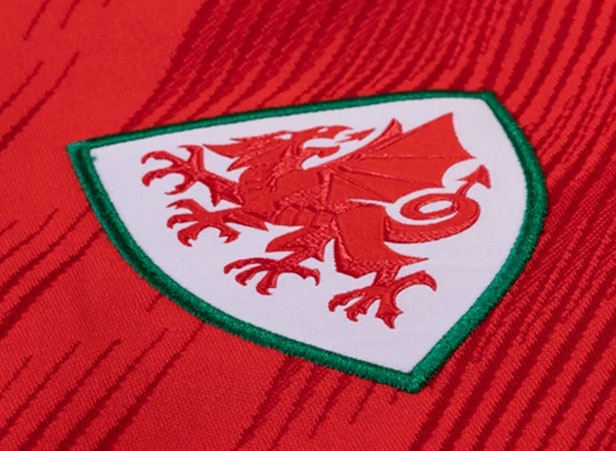
Nerd alert! So beyond a passion for soccer, I have a not-so-secret love for The Hobbit and The Lord of the Rings. Ergo, any football crest that features a dragon rampant was always going to catch my attention. (Go ahead, make your jokes.) In my opinion, the 2022 version of the dragon crest on Welsh jerseys isn’t quite as cool as some that have been featured for this Celtic nation in the past, but it’s still an awesome, bold, fiery dragon that gives symbol to the passion of its fans, whose team is playing in a World Cup for the first time since 1958.
Furthermore, there are centuries’ worth of history in the shield. The red dragon is a heraldic symbol representing Wales and appears on the nation’s flag. It’s reportedly been used as an emblem since the reign of Cadwaladr, King of Gwynedd, from around 655 AD. Yma o Hyd indeed!
4. Japan
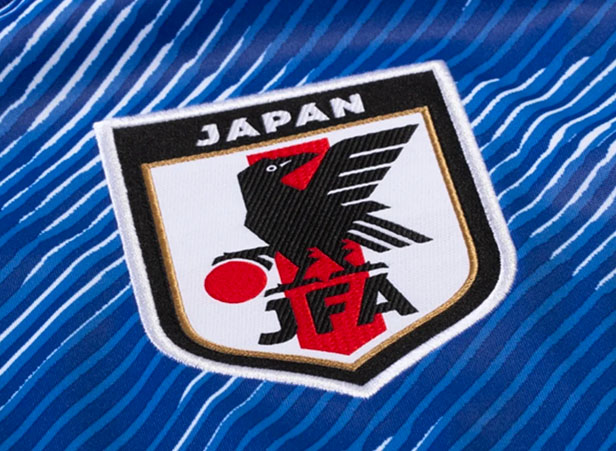
Myth and footy meet in Japan’s fantastic crest. The emblem features the Yatagarasu, a three-legged crow from Japanese mythology that’s an incarnation of the sun and also a god of guidance. The crow holds a red ball that recalls the sun featured on Japan’s national flag. The red stripe in the back adds a striking yet minimalist flourish that evokes certain traditional Japanese art styles while also being contemporary. Worth noting: This shield adorns a jersey whose overall design could arguably be the best of the bunch in Qatar.
3. Poland
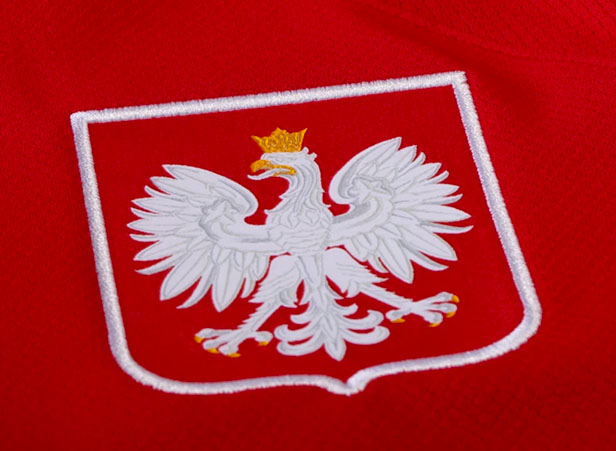
Speaking of mythical narratives: Poland’s crest has that in plenty. A clean and strong design, the crowned White Eagle that appears on the jerseys of the Biało-czerwoni (White and Reds, a nickname) is the national coat of arms of this Eastern European nation. It’s said to have been a symbol of Poles/Poland for more than 1,000 years.
Folk stories say that Poland’s legendary founder, Lech, saw a red ray from a setting sun fall on the wings of a nesting white eagle, making the bird’s wings appear to be tipped with gold, while the rest of the aquiline avian remained white as snow. Lech was deeply moved. He would go on to make the eagle his emblem – and settle where he saw the bird, in modern-day Poland. Over the centuries, as Poland defended against invaders, the White Eagle flew – sometimes victorious, sometimes beaten, but always to emerge, signaling the spirt of a people. From the early 20th century to now, the nation’s football heroes have worn that White Eagle on their shirts as they do battle on the pitch.
2. England
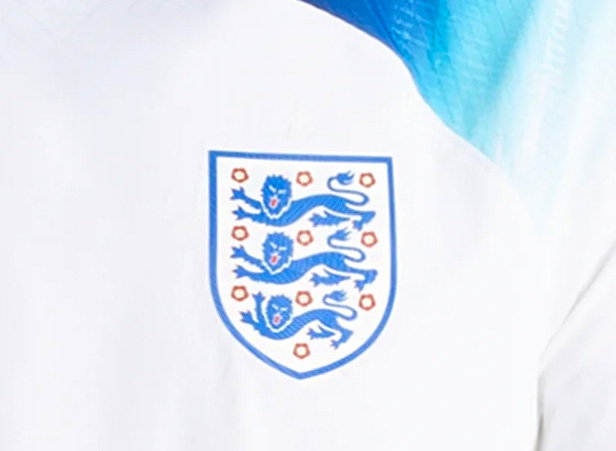
Some would argue that England’s crest is the most iconic in world football, though Brazilian fans might have something to say about that. While the English men’s national team has only won a single major trophy (the 1966 World Cup), England is the birthplace of modern soccer and its top-flight domestic club league is the most watched/popular in the world. Given this and more, including its cultural influence (good and bad) on the game, England has an outsized role in world football and its crest is known everywhere.
It's not just England’s rep that makes this crest excellent, though. The three lions are more than a logo: They’re a centuries-old emblem of England itself. In the 1100s, King Henry II was said to be the first to use three lions on a red background as a coat of arms, adding a lion to the two used by William the Conquer when he battled his way to the English throne in the late 1000s. Other team crests use lions, but England’s Three Lion design is unique, historic and downright unmistakable.
1. Mexico
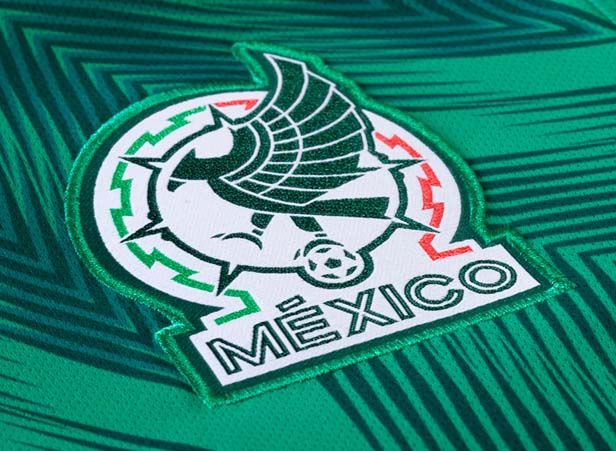
Mexico debuted this new crest in 2021 and it’s full of compelling design narratives. The central Eagle figure is inspired by traditional Aztec and Mayan art that’s native to the country. The font for “Mexico” takes its cue from text types used in the 1968 Summer Olympics and the 1970 and 1986 World Cups – all hosted by Mexico. And about that 1970 World Cup: Adidas’ now-famous Telstar ball debuted there as the tournament’s official match ball; given that notable development in the world game, the ball features in this logo. You note the green and red colors of the Mexican flag, of course. But what pulls it all together – the central element? Designers based the logo structure on the Sun Stone, a historically important late post-classic sculpture of the Mexica people. Still, even if you didn’t know any of that, there’s this simple fact: The logo just looks super-rad, especially set against the lush green of El Tri’s jerseys

